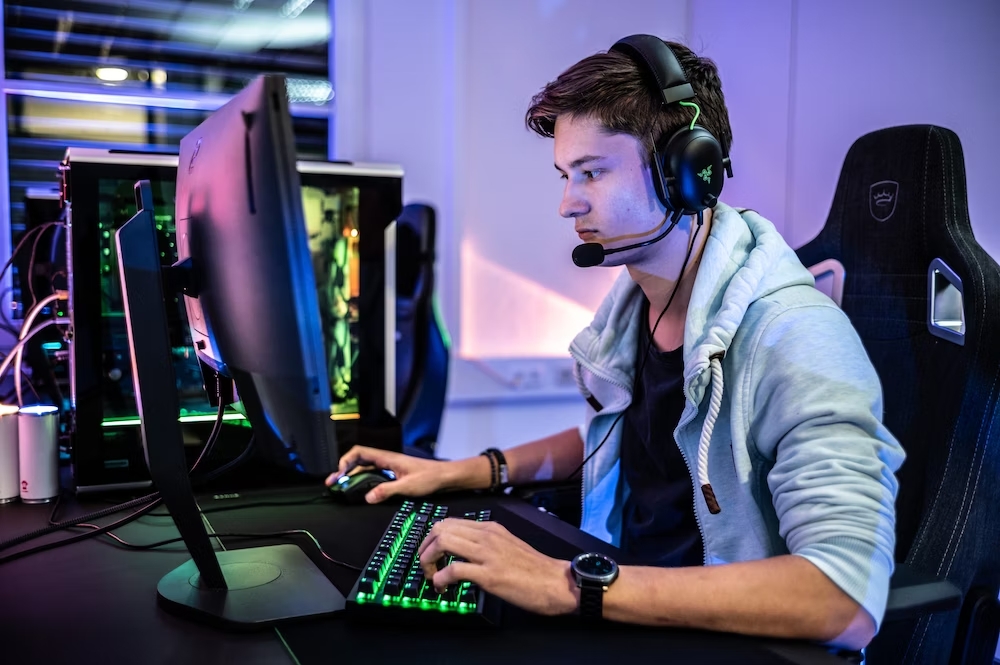
Partnering with Gaming Content Creators (Guide)
In the evolving digital marketing arena, one segment has emerged as the undisputed champion – gaming content creators. From Twitch streamers to YouTube gamers, and esports influencers, these individuals have created a substantial impact on the gaming industry. This blog explores the significance of partnering with gaming content creators, delving into the diverse landscape of influencers, the evolution of influencer marketing in gaming, and why such collaborations matter.
Who are Gaming Content Creators
Types of Gaming Content Creators
Gaming content creators come in various forms, each contributing uniquely to the industry. Streamers, esports players, game reviewers, and social media influencers make this ecosystem, providing brands with various options to suit their marketing goals.
Reach and Impact
The reach of gaming content creators is unparalleled, with millions of followers across platforms. Engagement metrics showcase the influence these creators hold, directly impacting purchasing decisions. Moreover, the demographic diversity of their audience spans the globe, offering brands a unique opportunity to connect with a broad consumer base.
Influencer Marketing in the Gaming Industry
Historical Perspective
From humble beginnings, gaming influencers have risen to prominence, reshaping the marketing landscape. Early collaborations paved the way for transitions from traditional advertising to influencer-driven campaigns, showcasing the power these creators hold in shaping consumer opinions.
Case Studies
Examining successful partnerships provides valuable insights into effective influencer marketing. From gaming peripherals to game launches, understanding the strategies behind successful campaigns is crucial for brands seeking to enter this space.
Why Partnering with Gaming Content Creators Matters
Authenticity and Relatability
Gaming influencers are celebrated for authenticity, forging genuine connections with their audience. The relatability factor enhances the effectiveness of marketing messages, as followers trust recommendations from influencers they perceive as authentic.
Niche Targeting
Tailoring campaigns to specific gaming genres and communities is a key advantage of influencer marketing. The ability to engage highly passionate and involved audiences in specific niches ensures that brand messages resonate more deeply.
Building Trust and Credibility
Trust is paramount in the gaming community, and influencers play a crucial role in establishing and maintaining it. Collaborating with influencers enhances brand credibility, as their recommendations are often seen as endorsements by a trusted figure.
Strategies for Effective Collaboration
Identifying the Right Gaming Content Creators
Thorough research is essential to identify influencers whose content aligns with a brand’s values. Understanding the influencer’s audience and ensuring a match with the target demographic is crucial for successful collaborations.
Crafting Compelling Campaigns
Developing creative and engaging content ideas is fundamental. Leveraging the unique strengths of gaming influencers, such as their gameplay styles or commentary skills, ensures that campaigns stand out in a crowded digital space.
Negotiating and Structuring Agreements
Negotiating fair compensation and structuring agreements that benefit both parties is key. Understanding the various compensation models, from flat fees to revenue sharing, ensures a mutually beneficial partnership.
Measurement and Analytics
KPIs for Gaming Influencer Campaigns
Effective measurement requires tracking engagement metrics, such as likes, shares, and comments. Additionally, understanding the impact on brand awareness and sales is crucial for evaluating campaign success.
Tools and Platforms for Analysis
Utilizing analytics tools aids in monitoring campaign performance. Social listening tools can provide insights into audience sentiment, helping brands make data-driven decisions for future collaborations.
Overcoming Challenges in Gaming Influencer Partnerships
Authenticity Concerns
Maintaining authenticity in influencer collaborations is a delicate balance. Strategies such as integrating branded content seamlessly into an influencer’s style and encouraging genuine interactions with the audience can address authenticity concerns.
Managing Negative Feedback
Negative feedback is inevitable, and addressing it promptly is crucial. Turning challenges into opportunities for brand growth and showcasing responsiveness builds trust with the audience.
Future Trends in Gaming Influencer Marketing
Emerging Platforms and Technologies
The advent of virtual reality (VR) and augmented reality (AR) opens new possibilities for influencer marketing. Brands should explore innovative ways to leverage these technologies for immersive and engaging campaigns.
Evolving Influencer-Brand Relationships
Long-term partnerships are a growing trend in influencer marketing. Collaborations extending beyond traditional sponsored content offer influencers and brands the opportunity to build deeper, more authentic relationships.
Conclusion
As we navigate the dynamic realm of digital marketing, gaming content creators stand out as the final bosses of influencer marketing. Their ability to authentically connect with diverse audiences, coupled with the potential for niche targeting, makes them invaluable partners for brands. Understanding the nuances of effective collaboration, measurement strategies, and emerging trends ensures that brands can harness the power of gaming influencers for sustained success in the ever-evolving digital landscape.
